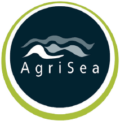Human Health / Alternative Proteins
Research Funded To Unlock Seaweed’s Potential As New `superfood’
It is far from a staple on most Kiwi dinner tables, but AgResearch scientists are aiming to unlock the potential of seaweed as a go-to food with proven health benefits. And they have enlisted the services a of a world-class chef to help them do it.
The scientists are joining counterparts in Singapore in a project funded by New Zealand government, in the amount of $3.3 million, alongside parallel funding from the Government of Singapore. The New Zealand funding is from the Catalyst Fund:Strategic – New Zealand-Singapore Future Foods Research Programme.
The research, focused on the Undaria pinnatifida species of seaweed abundant in waters around New Zealand and Singapore, also involves partners the University of Otago, University of Auckland, A*STAR, AgriSea NZ, Ideas 2 Plate and AMiLi.
“People around the world have been eating seaweed for centuries, including Māori,” says AgResearch senior scientist Dr Linda Samuelsson.
“But despite it being easily grown and rich in important nutrients, it is not a staple in most peoples’ diets. Partly that is because it isn’t to many people’s taste, but also because many of these important nutrients are locked inside the seaweed and aren’t readily absorbed by our bodies when we eat it.”
“What we are aiming to do with this research is develop ways to cook or process the seaweed so that we have flavours and textures that appeal to people, but we also want to look at the health aspect. Seaweed proteins are typically less digestible than animal proteins, so we will be looking at in what form the seaweed can better deliver the nutrients to the person eating it. We’ll also be looking at how the seaweed proteins interact with peoples’ gut microbiome (the collection of microorganisms that live in the digestive tract).”
It is far from a staple on most Kiwi dinner tables, but AgResearch scientists are aiming to unlock the potential of seaweed as a go-to food with proven health benefits. And they have enlisted the services a of a world-class chef to help them do it.
The scientists are joining counterparts in Singapore in a project funded by New Zealand government, in the amount of $3.3 million, alongside parallel funding from the Government of Singapore. The New Zealand funding is from the Catalyst Fund:Strategic – New Zealand-Singapore Future Foods Research Programme.
The research, focused on the Undaria pinnatifida species of seaweed abundant in waters around New Zealand and Singapore, also involves partners the University of Otago, University of Auckland, A*STAR, AgriSea NZ, Ideas 2 Plate and AMiLi.
“People around the world have been eating seaweed for centuries, including Māori,” says AgResearch senior scientist Dr Linda Samuelsson.
“But despite it being easily grown and rich in important nutrients, it is not a staple in most peoples’ diets. Partly that is because it isn’t to many people’s taste, but also because many of these important nutrients are locked inside the seaweed and aren’t readily absorbed by our bodies when we eat it.”
“What we are aiming to do with this research is develop ways to cook or process the seaweed so that we have flavours and textures that appeal to people, but we also want to look at the health aspect. Seaweed proteins are typically less digestible than animal proteins, so we will be looking at in what form the seaweed can better deliver the nutrients to the person eating it. We’ll also be looking at how the seaweed proteins interact with peoples’ gut microbiome (the collection of microorganisms that live in the digestive tract).”

Talk To Your Local Farm Consultant
Our team of experts is ready to connect with you, providing tailored solutions and expert advice to help you meet your requirements.


